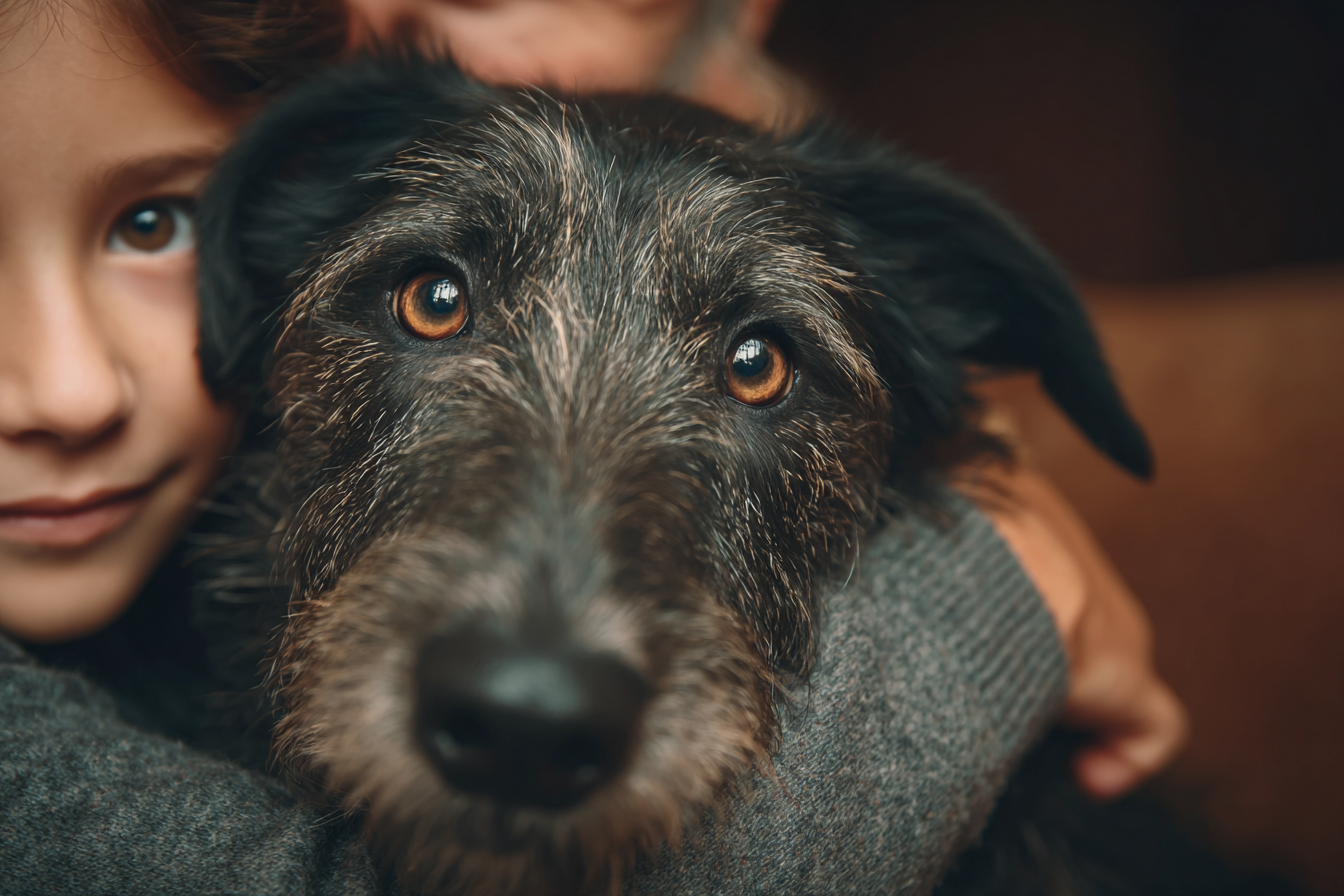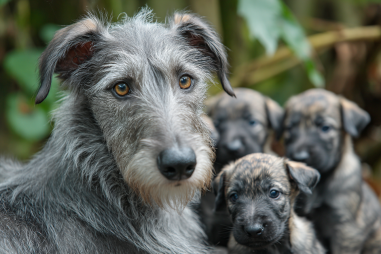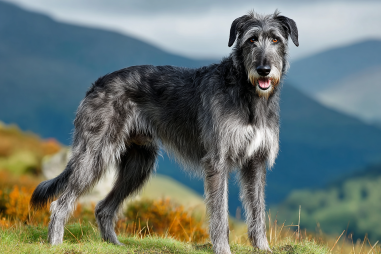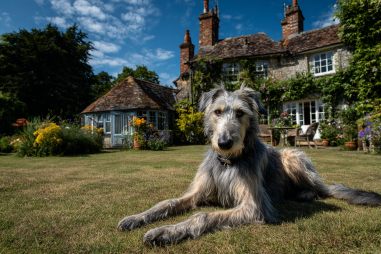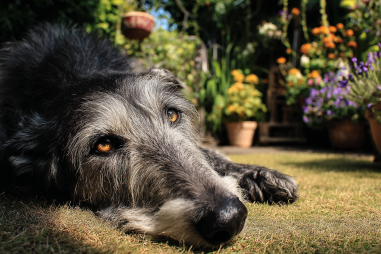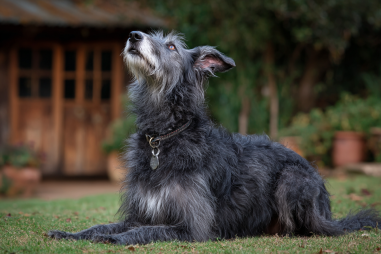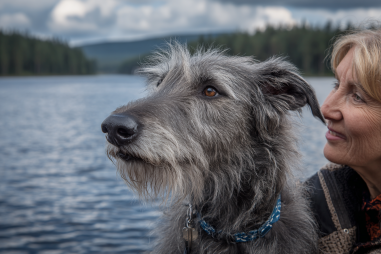The Scottish Deerhound is a majestic and graceful breed, well-known for its gentle and dignified nature. If you’ve ever encountered one, their calm demeanor and noble appearance leave a lasting impression. But beyond their striking looks, understanding the temperament and personality of Scottish Deerhounds is essential for anyone considering inviting one into their home. This breed’s unique traits influence their interactions with family, other pets, and their environment. Let’s explore what makes the Scottish Deerhound a truly special companion.
Overview of Breed Temperament
Scottish Deerhounds possess a temperament that’s often described as gentle, calm, and affectionate. They are renowned for their quiet and dignified nature, which sets them apart from many other sighthounds known for their energetic personalities. Although they were originally bred for hunting deer in the rugged Scottish Highlands, modern Deerhounds are much more relaxed in their daily lives.
This breed tends to be reserved and somewhat shy around strangers but rarely aggressive. They have a strong bond with their families and enjoy companionship while maintaining an independent streak. Deerhounds are intelligent yet not overly eager to please, so they can seem a bit aloof at times, but their loyalty and affection shine through once a trusting relationship is established.
Their temperament makes them excellent companions for those seeking a calm, low-key dog that embodies a noble presence. However, they still retain some prey drive due to their hunting heritage, so keeping an eye on small animals and providing appropriate outlets for their instincts is important.
Interaction with Children and Other Pets
Scottish Deerhounds are generally good-natured and patient, making them well-suited to living with children. They have a gentle approach and are rarely rough, which helps create a harmonious household. Their calm demeanor allows children to interact with them comfortably, though supervision is always recommended with younger kids to ensure respect and safety on both sides.
When it comes to other pets, Scottish Deerhounds tend to get along well with dogs and larger animals, especially if they are socialized from a young age. Due to their sighthound instincts, they may have a strong chase drive toward smaller pets like cats or rabbits unless properly introduced and trained. With consistent socialization, however, many Deerhounds live peacefully with feline companions and other household animals.
Tips for Managing Interactions
- Always supervise early meetings between Deerhounds and children or other pets.
- Teach children how to gently and respectfully handle the dog.
- Provide structured socialization opportunities with different animals to reduce prey drive behaviors.
- Offer plenty of space to retreat for all animals to avoid stress or conflict.
Social Needs and Behavior
Scottish Deerhounds are sociable dogs who enjoy being part of the family circle. While they are not overly demanding of attention, they thrive when included in daily activities and affectionate interactions. Loneliness or long periods of isolation can lead to boredom and mild anxiety, though they’re not typically destructive.
This breed prefers a peaceful environment and rarely exhibits hyperactive or attention-seeking behavior. Their social behavior is marked by calmness and reliability. They can be independent thinkers but appreciate gentle encouragement and positive companionship.
Because of their history as hunters accustomed to working closely with humans, Deerhounds can form strong attachments to their owners. However, they’re not overly clingy and usually handle alone time fairly well if accustomed to it gradually.
Training Impact on Personality
Training and socialization profoundly influence the personality of a Scottish Deerhound. These dogs respond best to patient, consistent, and positive reinforcement methods rather than harsh correction. Due to their independent nature, they may occasionally appear stubborn or require extra motivation.
When properly trained, Deerhounds become well-mannered, confident, and happy pets. Training helps channel their natural instincts in constructive ways and mitigates behavioral issues related to boredom or frustration. Socialization early in life is essential to help them feel comfortable with people, animals, and various environments.
Training sessions also provide mental stimulation, which is vital for maintaining their calm and balanced personality. Activities like leash walking, recall exercises, and gentle obedience can deepen the bond between dog and owner while enhancing the dog’s confidence.
Adapting to Different Living Situations
Scottish Deerhounds are surprisingly adaptable, though their size and exercise needs require some consideration. They can thrive in rural, suburban, and even some urban settings, provided their daily needs for moderate exercise and mental engagement are met.
While they do need regular opportunities for stretching their legs and running safely, Deerhounds are generally content to relax indoors for much of the day. Their calm temperament suits quieter homes without constant noise or chaos, which can stress a sensitive dog.
Those who live in apartments must commit to providing adequate daily exercise and mental stimulation. A secure, fenced space for off-leash activity is ideal for this breed, as their prey drive means they shouldn’t be let off-leash in unsecured areas.
Deerhounds enjoy companionship but do not usually thrive in households where they are left alone for long periods. They appreciate routines and knowing what to expect, showing more relaxed behavior when their environment is stable and peaceful.
Embracing the Unique Charm of Scottish Deerhounds
The Scottish Deerhound’s temperament and personality blend regal calmness with deep loyalty and gentleness. Their reserved dignity, combined with their affection for family members, makes them a wonderful addition to many homes. They require an owner who appreciates their quiet strength and history while providing the love, respect, and gentle training they deserve.
Whether you’re drawn to their noble stature or their warm-hearted nature, getting to know the Scottish Deerhound means understanding their unique social needs, respecting their independent spirit, and celebrating their extraordinary personality. With the right care and attention, a Scottish Deerhound can become a treasured companion, enriching your life with grace, loyalty, and quiet kindness.

